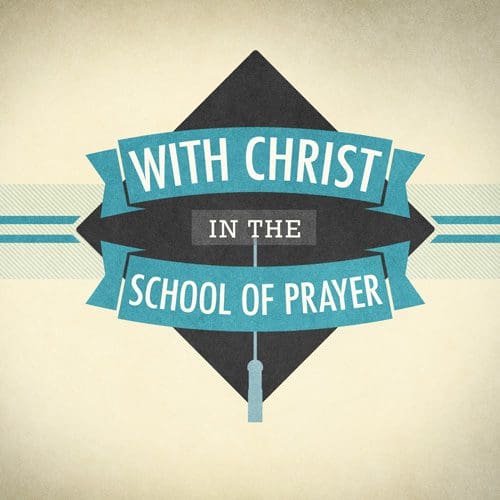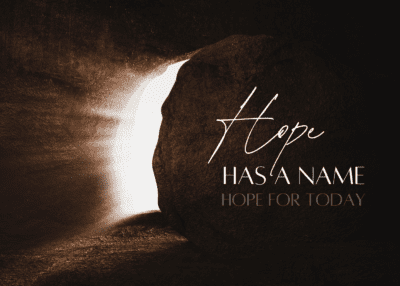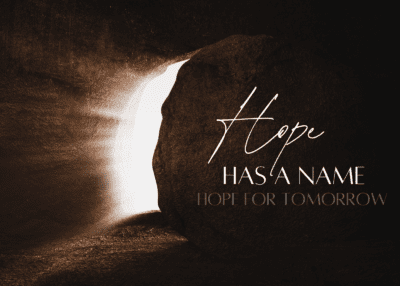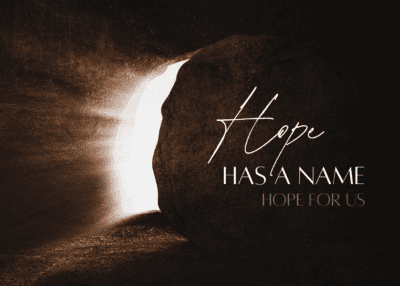the pride of his face the wicked does not seek him;
all his thoughts are, “There is no God.”
His ways prosper at all times… Psalm 10:4-5
God has given us a book of prayers in the Bible. The book of Psalms has prayers for every imaginable circumstance of life. We know that these prayers are pleasing to God because they are Scripture; they were breathed out by the Holy Spirit through the experiences of David and the other writers of these psalms.
When we feel that we need to grow in this holy art of prayer, the book of Psalms is the place to go. Today, as we come to Psalm 10, two things are very striking about this prayer: First, the wicked seem to be winning. Second, God seems to be far away.
Pray When the Wicked Seem to be Winning
There are 18 verses in this psalm, and 11 of them are given to a sustained description of the character and activities of the wicked:
v2 In arrogance, the wicked hotly pursue the poor;
v3 For the wicked boasts of the desires of his soul…
v4 In the pride of his face, the wicked does not seek him [God];
v5 [The wicked’s] ways prosper at all times;
v6 He says in his heart ‘I shall not be moved…’
v7 His mouth is filled with cursing…
v8 He sits in ambush in the villages;
There is no doubt what this prayer is about. It is all about wicked people.
It is about evil that seemed to David to be coming in like a flood. It is an outpouring of the grief and distress that a godly person feels when evil becomes rampant.
When David sees evil multiplying in the land, he takes time to lay out the problem before God. This is important when we are praying about the darkness that is in the world. Don’t rush over the problem. Spell it out before God in detail.
This is what you do when you share a problem with a friend. You sit down together over lunch and you tell the story—in detail. Do the same with God. Tell him the whole story.
David gives us a five-point profile of a wicked person. What does wickedness look like? What makes a person wicked?
Five-point profile of a wicked person
1. Proud
In arrogance the wicked hotly pursues the poor; Psalm 10:2
The wicked boasts of the desires of his soul… Psalm 10:3
The wicked make a virtue of whatever they want to do. Whatever they want is defined as “good” for the simple reason that “I want to do it.” The reason this is wicked is that it is putting yourself in the place of God.
In the pride of his face the wicked does not seek [God]; Psalm 10:4
He says in his heart ‘I shall not be moved…’ Psalm 10:6
The wicked person tells himself that he is completely secure in his position. He feels that the future is with him: “Throughout all generations I shall not meet adversity…” (Psalm 10:6). “The position that I have adopted is completely secure.” The wicked are always telling themselves that there is nothing to worry about.
2. Foul-mouthed
The one greedy for gain curses… Psalm 10:3
His mouth is filled with cursing and deceit and oppression;
under his tongue are mischief and iniquity. Psalm 10:7
What’s in the heart comes out of the mouth in all kinds of cursing and lies.
3. Greedy
The one greedy for gain curses and renounces the Lord. Psalm 10:3
He lurks that he may seize the poor; Psalm 10:9
This is how he is going to advance the purpose of his greed.
4. Violent
He lurks in ambush like a lion in his thicket; Psalm 10:9
Maybe you know someone like this: Everything seems quiet and peaceful, but suddenly this person springs up and offloads, and they’re in a rage. You are left saying, “Where did that come from?”
The wicked person is volatile, given to sudden outbursts of rage. Unpredictable. Frightening. Destructive. Like the lion the wicked know that they have power and they always use it in a destructive way.
5. Godless
In the pride of his face the wicked does not seek him;
all his thoughts are, “There is no God.” Psalm 10:4
The Holy Spirit has given us a fascinating insight into the heart of a wicked person in this psalm. Three times we are told about how a wicked person actually thinks. The wicked person constantly tells himself or herself that there is no God. This is an active pattern of thought.
We often speak about preaching the gospel to yourself every day. Keep telling yourself what God has done for you in Christ. But the wicked person keeps telling him or herself that there is no God.
What you believe really determines how you live. The wicked person wants to live according to all the desires of his or her soul. And in order to do that, this person tells himself that there is no God.
But there is also another strand of thoughts running in this person’s mind:
He says in his heart, ‘God has forgotten…’ Psalm 10:11
Why does the wicked renounce God and say in his heart, ‘You will not call to account’? Psalm 10:13
I want you to notice something very important. There is a contradiction that lies in the heart of the wicked person:
All his thoughts are, ‘There is no God.’ Psalm 10:4
He says in his heart, ‘God has forgotten,
he has hidden his face…’ Psalm 10:11‘[God] will not call to account.’ Psalm 10:13
Do you see the tension here? The wicked person cannot quite convince himself that there is no God. Derek Kidner describes this as the “inner dialogue” of a wicked person.
He keeps telling himself that there is no God. But no matter how often he does this, he can’t quite escape the sense of a divine being. So he resorts to an alternative argument.
This is what lawyers do in the courtroom when they’re failing. They resort to another argument: “He says in his heart, ‘God has forgotten, he has hidden his face, he will never see it’” (Psalm 10:11).
Take encouragement from this, Christian, when you are praying for people who are defiant towards God. There is an inner dialogue in the soul of the wicked. The Bible says that there’s no peace for the wicked. And this is why: There is a hidden battle going on inside over God.
“What if there really is a God?” Most of the time, the wicked manage to suppress this disturbing thought (Romans 1:18). But the wicked can never really escape this question, and here’s why…
Since the wicked are made in the image of God, and since they live in a world that was created by God, this is not easy to do. It takes a constant effort of mind and heart, because evidences of God keep springing up.
He has to keep saying “There is no God” to himself, because his heart within him and the world around him keep suggesting otherwise. So, here is a five-point profile of a wicked person: Proud, foul-mouthed, greedy, violent, and godless.
Whenever you see any traces of these things in your own heart, deal with them decisively. If these are the things that characterize the wicked, I do not want even a trace of them to be found in me.
How do you deal with it? First, confess it to God. Renounce it completely. Ask for the cleansing power of the blood of Jesus to be applied to this pride, this cursing (in the heart or in the mouth), this violence, or this godlessness. Don’t mess with it. It’s deadly poison. If it takes root, it has the power to destroy you.
Wickedness is not a new phenomenon, it only takes new forms
In one generation, wickedness is clothed in hypocrisy, in another generation wickedness is clothed in defiance. Once you see this, it will help you in praying through the issues of our day.
For many years it has been said that about a third of all Americans regularly attend a place of worship. That number today is 17%. 17% attend church at least once a month. That means 83%, the vast majority, are now outside the church.
Everything seems to be changing around us. And in one sense it is. But at another deeper level, it’s exactly the same. In the last generation, more people were resisting God while sitting in a church. Today more people are resisting God, without ever bothering to show up in church.
John Calvin points out that when wickedness “breaks out like a flood” in a nation, the big temptation for believers is that we are shaken in our faith and that we fall into despair:
It tends greatly to lighten grief, to consider that nothing befalls us at this day which the Church of God has not experienced in days of old… We are just called to engage in the same conflicts with which David and the other holy patriarchs were exercised.
If we take the Bible seriously, as opposed to being naïve moralists, there will be times when the wicked seem to be winning. Let’s not be naïve about evil, sin, and its power.
As Christians who have signed our statement of faith, we say we believe that men and women are born sinners, hostile to God, and dead in trespasses and sins. Do you believe that the default position of the human heart is antagonism toward God?
If so, why are we surprised when sinners want to sin? Sinners will always want to sin and they will constantly find new ways of sinning. This is the world in which we live, the world in which we suffer, and the world in which we bear witness.
Christians who understand this world learn to pray. The more we understand the nature of this world, the more we will not only pray, but we will long for the new heaven and the new earth, the home of righteousness, where sin will be no more.
Pray When God Seems to be Far Away
Why, O Lord, do you stand afar off?
Why do you hide yourself in times of trouble? Psalm 10:1
It’s hard enough to pray when the wicked seem to be winning. But how in the world are you going to pray when God seems far away? We have all known this experience, and I find it helpful to know that King David knew about this too.
What is even better is that the Holy Spirit was present and active in David, even when he felt that God was far away. This prayer is Scripture, and that means it was breathed out by the Holy Spirit through David. So David was praying in the Spirit when he felt that God was far away!
Here’s an encouragement for every believer: God is with you and active in you by his Holy Spirit even when you feel that he is far away. So pray when the wicked seem to be winning and pray when God seems far away.
How the Holy Spirit leads David in prayer
Stop thinking like the wicked
There’s a fascinating turn in this psalm, almost as if thinking about the wicked awakens David to a renewed faith in God. David prays: “Why, O Lord, do you stand afar off? Why do you hide yourself?” God, you seem so far way, so remote, so uninvolved. You don’t seem to do anything!
At some point in the psalm it seems to dawn on David: “That’s what the wicked believe!” David says: “Why do you hide yourself in times of trouble” (Psalm 10:1)? The wicked say: “He has hidden his face, he will never see it” (10:11). I’m discrediting God. That’s what the wicked do!
It’s as if David says to himself, “Wait a minute… I’m saying the same thing as the wicked!” Something happens to David in the course of this prayer, and it happens to him as he is praying. He finds help. Strength and faith come to him as he prays.
The turning point of the psalm is when David wakens up to what is happening in his own soul: “The wicked discount God. That’s what I have been doing and that’s why I have become so discouraged! David, stop thinking like the wicked!”
Start trusting God
Why does the wicked renounce God and say in his heart ‘You will not call to account…’? But you do see, for you note mischief and vexation… Psalm 10:13-14
The wicked person says in his heart that God has hidden his face. David says “But you do see…” (Psalm 10:14). The wicked person says in his heart that God has forgotten. David says “No, you don’t forget. You note mischief and vexation…” (10:14).
Core convictions for praying when the wicked seem to be winning
-
God’s eye
“You do see…” Psalm 10:14
David says “You see everything. Nothing is hidden from you.” God knows every injustice that’s ever happened in the history of the world. He knows all that has happened to you. If you’ve been oppressed, mistreated, or taken advantage of, God knows all about it. It’s all written down.
-
God’s hand
“Arise, O Lord; O God, lift up your hand… You note mischief… that you may take it into your hands.” Psalm 10:12, 14
The hand refers to strength. So, “Break the arm of the wicked” (Psalm 10:15), means “Break their power.” David asks God to use his divine power to break the power of the wicked. This is a prayer that God answers in part now. It will be fulfilled fully at the end of time.
As long as we’re in this world, we will face the challenge of wickedness. But God in his mercy restrains it, so that however dark the world becomes it is never as bad as it could be, if it were not for the grace of God. Only in hell is the full extent of wickedness fully known.
However great the challenges of wickedness that you experience, you can be sure that if it were not for the grace of God it would be worse. The great gift of prayer is that we can ask God to intervene and give us relief, to hold it back more (Psalm 10:12). We can ask God to strengthen us to stand against the evil that we face (Psalm 10:17).
-
God’s throne
“The Lord is king forever and ever;” Psalm 10:16
Faith looks to the throne of God. Faith remembers that the wicked, for all their arrogance, are like grass. Soon they will fade away. “In just a little while the wicked will be no more” (Psalm 37:10).
But the Word of the Lord endures forever. So, stop thinking like the wicked. Start trusting God. look to his eye, his hand, and his throne.
Stand with Christ in the School of Prayer
Jesus would have known this psalm. What did it mean to him? What use would it have been to him?
Did Jesus ever know what it was like to feel that the wicked were winning? Did our Lord know what it was to ask “Why” and feel that the Father was far off? Walk through this psalm and you see Jesus all over it.
Christ knows the greed of the wicked. He saw “the one greedy for gain” (Psalm 10:3) selling animals in the temple courts, turning the place of prayer into a market.
Christ knows what it is to stand alone when the wicked seem to be winning. He said to his enemies, “This is your hour, and the power of darkness” (Luke 22:53).
Christ knows what it is for the wicked to “lurk in ambush” (Psalm 10:9). “When I was with you day after day in the temple, you did not lay hands on me. [But now you come to me with swords and clubs]” (Luke 22:52).
Christ knows what it is to ask “Why?” Christ knows what it’s like to find himself in great darkness: “My God, my God, why have you forsaken me” (Matthew 27:46)? The Father feels so far off.
And Jesus Christ knows what it is to trust the Father in the face of overwhelming evil: “Father, into your hands, I commit my spirit” (Luke 23:46).
Jesus knows everything that gave birth to this psalm. He knows it from the inside. He knew it more deeply than David did or than any of us ever will. Christ has lived this psalm. And he is able to pray this psalm with you. You can pray this psalm with Jesus.
Is there an injustice you have suffered? Do you have enemies lying in wait? Is there someone out to get you and bring you down? You can meet Christ and Christ can meet you as you use the Psalms as the framework for your prayer.
Do you sometimes find yourself overwhelmed by the surge of wickedness that casts a violent shadow across our city and across our world? Have you felt that God is far away, and wondered if he has forgotten you? This psalm is for you. God is calling you to stand in faith, and you can do that because Jesus will stand with you.
Christ not only endured wickedness, he triumphed over it. Remember how Peter said it on the Day of Pentecost: “You with the help of wicked men put him to death by nailing him to the cross (Acts 2:23). But God raised him up! And he is the King forever and ever! (Psalm 10:16).
This Christ hears “the prayer of the afflicted…” He can “strengthen your heart” (Psalm 10:17), and that strength will come to you as you come like David and pray when the wicked seem to be winning.
He will come in power and glory, and when he does, he will “break the arm of the wicked” and “call his wickedness to account till you find none” (Psalm 10:15).
Christ will have the last word over wickedness. That’s the great truth that is demonstrated in the resurrection. Christ has risen. That means he sees. He is on the throne. Right now Christ’s hand is raised, not in judgment, but in mercy.
Here is good news for every person, however wicked you may have been. Wickedness is going down, but you don’t need to go down with your wickedness. God offers mercy and grace to you through his son, Jesus Christ, today.






